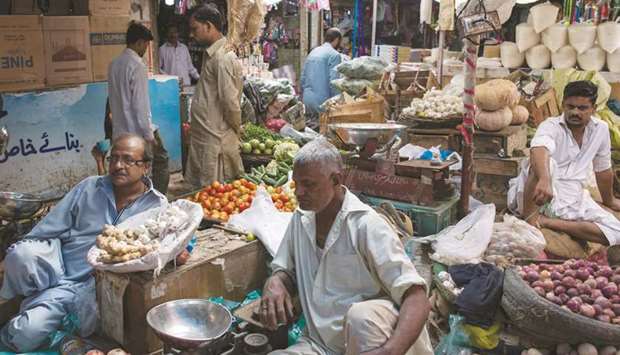Pakistan’s annual inflation reached more than four-year high of 8.2% for February as lagged impact of tenuous rupee finally hit the imports-dependent economy by lifting up prices of commodities.
Pakistan Bureau of Statistics (PBS) data showed that consumer price index (CPI) inflation clocked in at 7.19% year-on-year in January.
Consumer inflation was at the current level in 2014 and it was registered at 8.2% in June 2014.
The central bank has been highlighting the lagged impact of rupee devaluation on inflation numbers in its periodical reports.
Rupee lost more than 26% against the dollar since December 2016.
On a month-on-month basis, CPI inched up 0.64% in February, the PBS data said.
Analysts said rupee devaluation as well as increase in prices of perishable items were the main reasons behind rise in inflation.
“Another key factor is low-base effect. Inflation started to ratchet up from April last year,” Zeeshan Afzal, executive director of Insight Securities said. “I believe the trend may reverse from next month onwards when there will be high base.”
Annual inflation has so far been much above the government’s annual target of six per cent as well as crossed the range of 6.5% to 7.5% given by the State Bank of Pakistan, which raised its key policy rate by cumulative 450 basis points to 10.25% since January last year.
Analysts said tendency of banks to park money into short-term papers indicated the persistent monetary tightening policies in times to come.
Average inflation clocked in at 6.46% for the first eight months of the current fiscal year of 2018/19.
In February, core inflation (non-food and non-energy) was registered at 8.8% compared with 5.2% in the corresponding month a year earlier.

A vegetable market in Karachi. Pakistan’s annual inflation reached more than four-year high of 8.2% for February.
